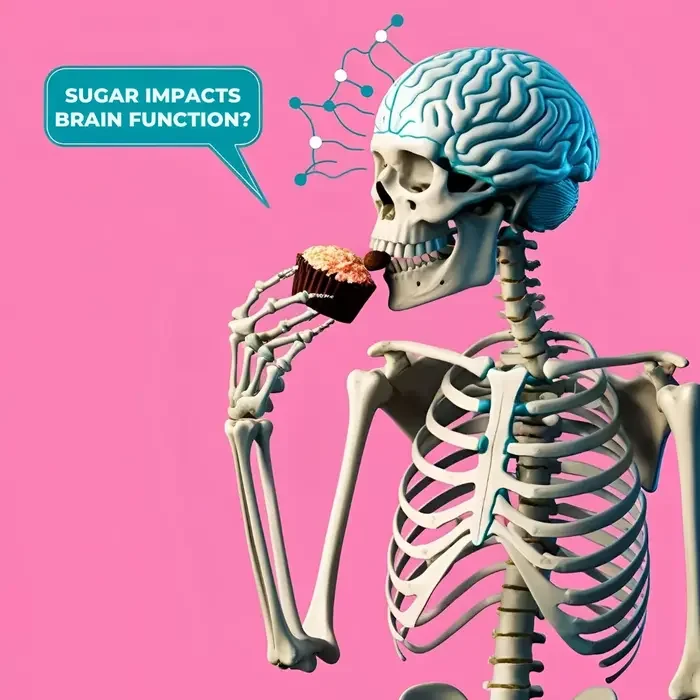Recent research suggests that consuming excessive amounts of added sugar may interfere with the brain’s ability to learn and remember effectively. While the brain relies on glucose for energy, high and consistent intake of sugar-sweetened beverages, desserts, and processed foods has been linked to cognitive decline, reduced learning ability, and poorer memory performance. Studies indicate that individuals with diets high in added sugars tend to perform worse on memory tests and learning tasks compared to those with lower sugar intake.
One of the key areas affected is the hippocampus, the region of the brain responsible for forming new memories and processing information. High sugar consumption appears to disrupt its normal functioning, making it harder for the brain to store and recall new information. Over time, this can lead to subtle but significant changes in cognitive health.
What’s particularly concerning is that these effects are not limited to older adults. Evidence shows that even young adults who consume large amounts of sugary foods and drinks can experience early signs of reduced cognitive performance. The combination of long-term high sugar intake and a sedentary lifestyle can accelerate these changes, leading to earlier onset of memory-related issues.
Nutrition experts emphasize that added sugar should be seen as more than just a dietary or weight concern—it’s also a brain health issue. Excessive sugar intake promotes inflammation and oxidative stress in brain tissues, which may impair neural communication and plasticity, both of which are essential for learning and memory retention.
To support cognitive function, nutritionists recommend replacing high-sugar snacks with nutrient-rich alternatives such as whole fruits, nuts, seeds, and foods high in fiber and antioxidants. These help stabilize blood sugar levels while providing essential nutrients for brain function. Drinking water instead of sugary beverages and reducing processed food intake can also help maintain mental clarity and focus.
In essence, the growing body of research underscores the link between diet and brain health. Limiting added sugars isn’t just about maintaining physical well-being—it’s a crucial step in protecting cognitive performance and long-term mental agility.







































